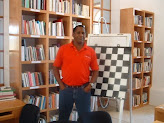♟️ 10 FRASES QUE LOS JUGADORES FUERTES NUNCA DICEN (Y TÚ SÍ)
En el ajedrez, el lenguaje revela el nivel de pensamiento. Las frases que usamos durante o después de una partida pueden decir mucho más que el rating.
👉 Aquí te dejo 10 frases típicas que los jugadores intermedios dicen todo el tiempo…
🎯 Pero que los jugadores fuertes jamás dirían.
Prepárate para reírte, reflexionar… ¡y mejorar!
1. “¡Iba ganando hasta que me dieron jaque mate!”
🧠 Los jugadores fuertes saben que una ventaja no sirve de nada si no se convierte en victoria. Reconocen que una partida mal cerrada es una partida mal jugada.
2. “Perdí porque me distraje”
💡 La concentración es parte del juego.
Un maestro no se excusa: la distracción es un error tan grave como perder una pieza.
3. “Mi rival tuvo suerte”
🎲 El ajedrez no tiene dados.
La “suerte” en ajedrez suele ser una mala evaluación disfrazada. Los fuertes aceptan que el rival también puede jugar bien.
4. “No vi esa jugada”
👀 Un fuerte jugador también se equivoca, pero suele decir:
“Subestimé esa idea” o “Jugué sin calcular bien.”Nunca simplemente “no la vi.” Porque ver no es todo: entender es la clave.
5. “Le gané a un 2000” (aunque fue blitz en el celular)
📱 Un jugador fuerte no presume victorias casuales.
Valoran más una derrota bien jugada que una victoria sucia.
6. “No estudié aperturas porque soy táctico”
📘 Los jugadores fuertes saben que todas las fases del juego se conectan.
La apertura no se estudia por moda, se estudia para llegar al medio juego con sentido.
7. “Jugué rápido para meterle presión” (y me colgué una pieza)
⚡ Jugar rápido sin precisión es regalarle la partida al rival.
Los fuertes usan el reloj como herramienta, no como excusa para el caos.
8. “Yo también vi la jugada… después”
⏱️ Verla después no cuenta.
Los jugadores fuertes no reclaman jugadas “casi hechas”, solo las que realmente jugaron.
9. “No sé cómo gané”
🌀 ¿En serio? Entonces no aprendiste nada.
Un jugador fuerte siempre busca entender por qué ganó y por qué perdió.
10. “No importa, solo es una partida”
♟️ Sí importa.
Cada partida es una oportunidad de crecer.
Los jugadores fuertes valoran cada error, cada idea, cada movimiento.
🧠 Conclusión
No se trata solo de lo que dices…
🔁 Se trata de cómo piensas.
La próxima vez que pierdas (o ganes), escucha lo que sale de tu boca.
Si alguna de estas frases aparece, ¡es momento de subir el nivel mental!
👉 Cambia tu lenguaje. Cambia tu ajedrez.
.jpeg)















































